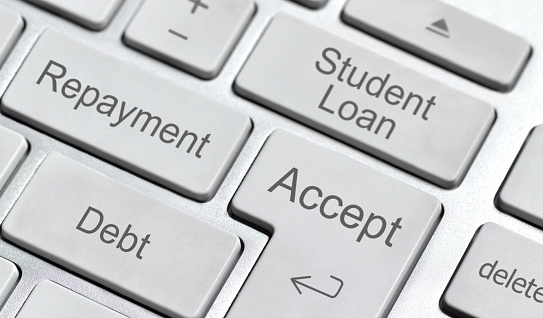The $2.2 trillion economic stimulus package known as the CARES Act (Coronavirus Aid, Relief, and Economic Security) has become law with the help of bipartisan support in Congress. It seeks to provide help for individuals, small businesses, and large corporations affected by COVID-19. Now you’re wondering what’s in it for you.
Besides a one-time stimulus check of $1,200, the 880-page bill enacts serious changes to student loans and the 44 million Americans still paying them off. You don’t want to miss these incentives since they may not be immediately obvious.
So, what does the CARES Act do for your student debt? Do you have to do anything to enjoy the changes? Here’s the lowdown on all the student loan adjustments within the economic stimulus package.
Suspended Student Loan Payments
During the early stages of the COVID-19 outbreak, the Department of Education set up a two moths payment suspension program for federal student loans. Borrowers had the option of contacting their lenders and requesting the waiver. The process was automatic for those who already missed a payment after the DOE enacted the waiver.
Legislators included and expanded this offer in the economic stimulus package. Until September 30th, 2020, all federally-held student loan payments are suspended. This does not apply to private loans, however.
The CARES Act requires lenders to roll out this suspension to all applicable borrowers. But what about the interest?
There isn’t any. Your federally-held student loans will not gain further interest during this time. This is true whether you make your student loan payments or not during this timeframe.
If you aren’t worried about your financial situation, then it may be wise to continue paying down your principal while the government defers interest.
It’s important to make the distinction that student loans are not forgiven. If you avoid four months of payments, you still owe them. Your final payment date will change to accommodate this.
Even those who are delinquent in their student loan payments can benefit. The federal government will not garnish wages, Social Security, or tax refunds related to the collection of federally-held student loan debt.
Eligibility Requirements
The CARES Act provides coverage for almost every student loan borrower. Almost.
The mandate only affects federal loans. It is, after all, an economic stimulus package by the federal government.
The Department of Education owns these federal student loans. If you ever received a loan through your college loan program, it’s likely a federal one.
In fact, 92% of student loans are owned by the federal government. It’s safe to say that the CARES Act covers most borrowers.
But what about the other 8% who own private student loans? Unfortunately, the Act does not cover those since the economic stimulus package doesn’t force direct loan lenders to put payments on pause.
Yet many of these private institutions may be enacting their policies to help you during this time. Log into the account associated with your private loan and look for notifications. If you don’t see a special offer from your private loan lender, consider giving them a call and asking for direct help.
Given the circumstances, these lenders may likely be happy to work with you.
Forgiveness Programs
The federal government offers different types of student loan forgiveness programs. These forgiveness programs forgive your federal student loan debt if you meet their criteria. However, that loan forgiveness is presently treated as taxable under federal law.
One program is that you must make 120 monthly payments while working for a public service employer to qualify. Legislators feared that people in this program would feel compelled to make payments. They’d be pushing back their quota otherwise.
Yet this economic stimulus package stipulates that suspended payments still count towards the quota. You’re free to pause student loan payments without worry of pushing back your forgiveness date.
Other forgiveness programs with monthly payment quotas enjoy the same benefit.
Employer Student Loan Payments
A handful of employers offer student loan repayment incentives. In normal circumstances, when an employer pays off part of an employee’s student loans, that counts as earned taxable income. These employees must pay higher taxes at the end of the year as a result.
Thanks to the CARES Act, from March 27 through December 31, 2020, the first $5,250 that employers put towards student loans will no longer count as income. However, anything over this amount will then affect income and thus the taxes that come with it.
In addition to employers paying for student loans, this $5,250 non-income allowance includes tuition payments. Employees won’t see their income raised when employers pay for their college classes. These different payments share the same $5,250 cap.
Student Loan Refinancing
Do you plan on continuing your student loan payments rather than taking advantage of the deferment? Then it may be a good idea to refinance your student loans. Interest rates are extraordinarily low due to recent market changes.
By refinancing, you can lower your student loan interest rates. That means you’ll pay less overall. And there’s no better time on the horizon.
Keep in mind that to refinance, you’ll need a decent credit score and steady employment. Check out our rundown on student loan refinancing for more information.
Understanding the Economic Stimulus Package
Many financial analysts are still unpacking everything in the Trump administration’s new economic stimulus package. But you can rest assured that you now know some important student loan changes related to the CARES Act. It’s up to you to decide if you’ll take advantage of the deferment period or make continued payments without interest.
If you need more help through this time of economic uncertainty, check out our personal finance content.

